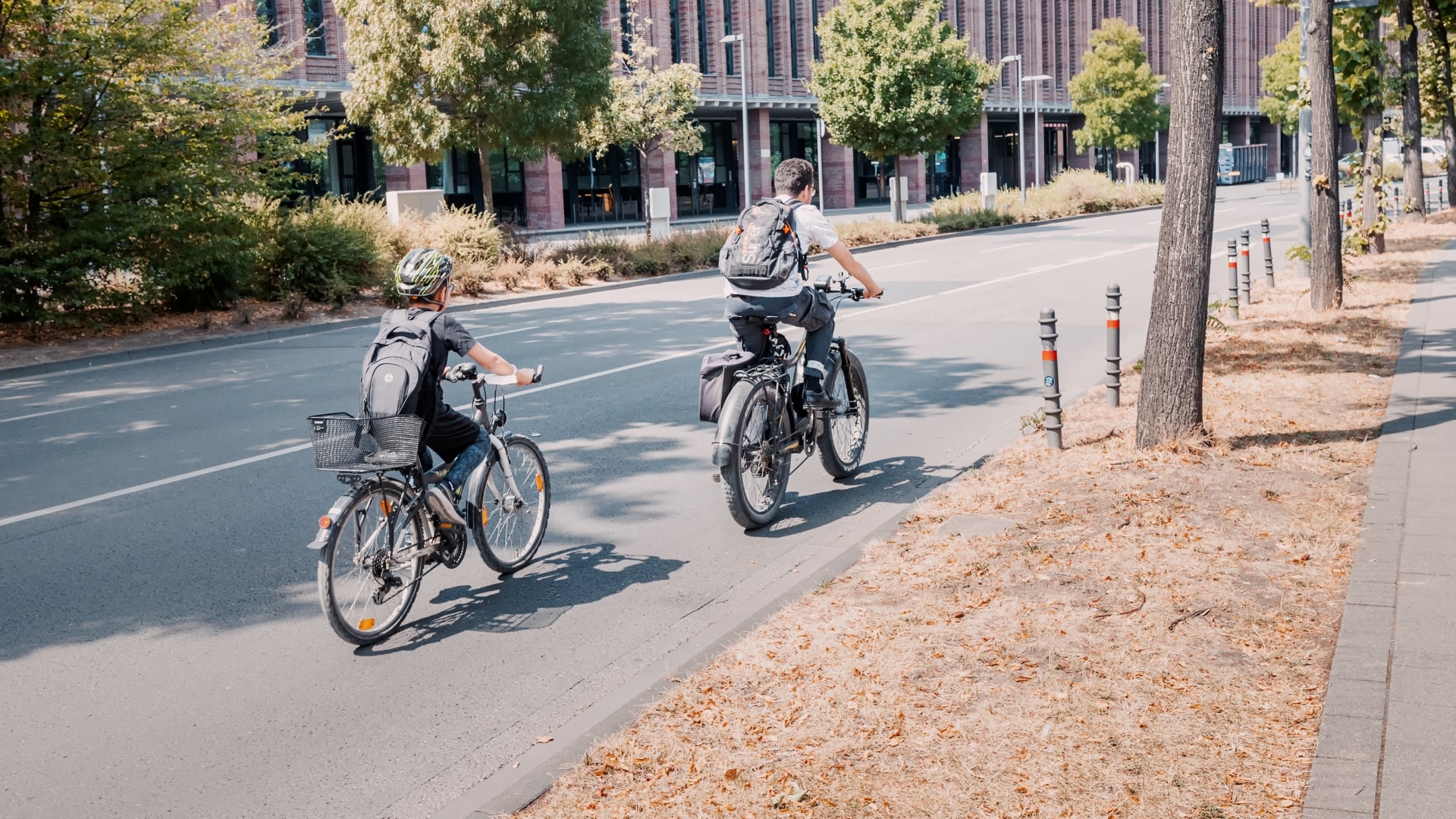
Employer cycling incentives effective both short and long term
310 days ago
2 minutes
Source: fietsberaad CROW
Measures that encourage employees to cycle to work in the Netherlands are still effective not only in the short term but also after a number of years. In particular, remuneration campaigns and purchase allowances reduce the number of car journeys among employees. This is the result of a study by MuConsult based on data from Zuid Limburg Bereikbaar.
Many employers try to encourage their employees to come to work by bike with measures such as e-bike borrowing, purchase subsidies and the provision of showers. They usually evaluate these measures only during and shortly after the project, and the results are almost always positive.
Accessibility organisation Zuid Limburg Bereikbaar has been carrying out studies into the effects of its cycling programmes for some time. Because the incentives have remained roughly the same over that period, the data from those studies provide an opportunity to examine the longer-term effects. Employees of mobility consultancy MuConsult carried out this research and wrote an article about this that recently appeared in NM Magazine.
Over a period of ten years, Zuid Limburg Bereikbaar conducted a total of twelve surveys among commuters. Many of them have joined a panel where there is data at the individual level over the years. There were 30,000 completed surveys available with at least two measuring points over time. The data provides insight into the mobility behaviour and car ownership of commuters and any changes therein.
With a model study, the MuConsult researchers mapped out the effects in the short term and the longer term (about five years). In doing so, they took into account, among other things, autonomous developments, such as the Corona crisis, which led to a decrease in car journeys. Most measures led to 10-20% fewer car trips among the user group in the short term. In the longer term, this effect decreases by a few percentage points.
Reward actions and purchase subsidies had the greatest effect. Reward actions led to 18% fewer car trips in the short term and 16% in the longer term, and purchase subsidies of up to 13% in the short term and 12% in the longer term.

LEVA EU
Campaign success
Lorem ipsum dolor sit amet, consectetur adipisicing elit, sed do eiusmod tempor incididunt ut labore et dolore magna aliqua.
Member profile
Lorem ipsum dolor sit amet, consectetur adipisicing elit, sed do eiusmod tempor incididunt ut labore et dolore magna aliqua.